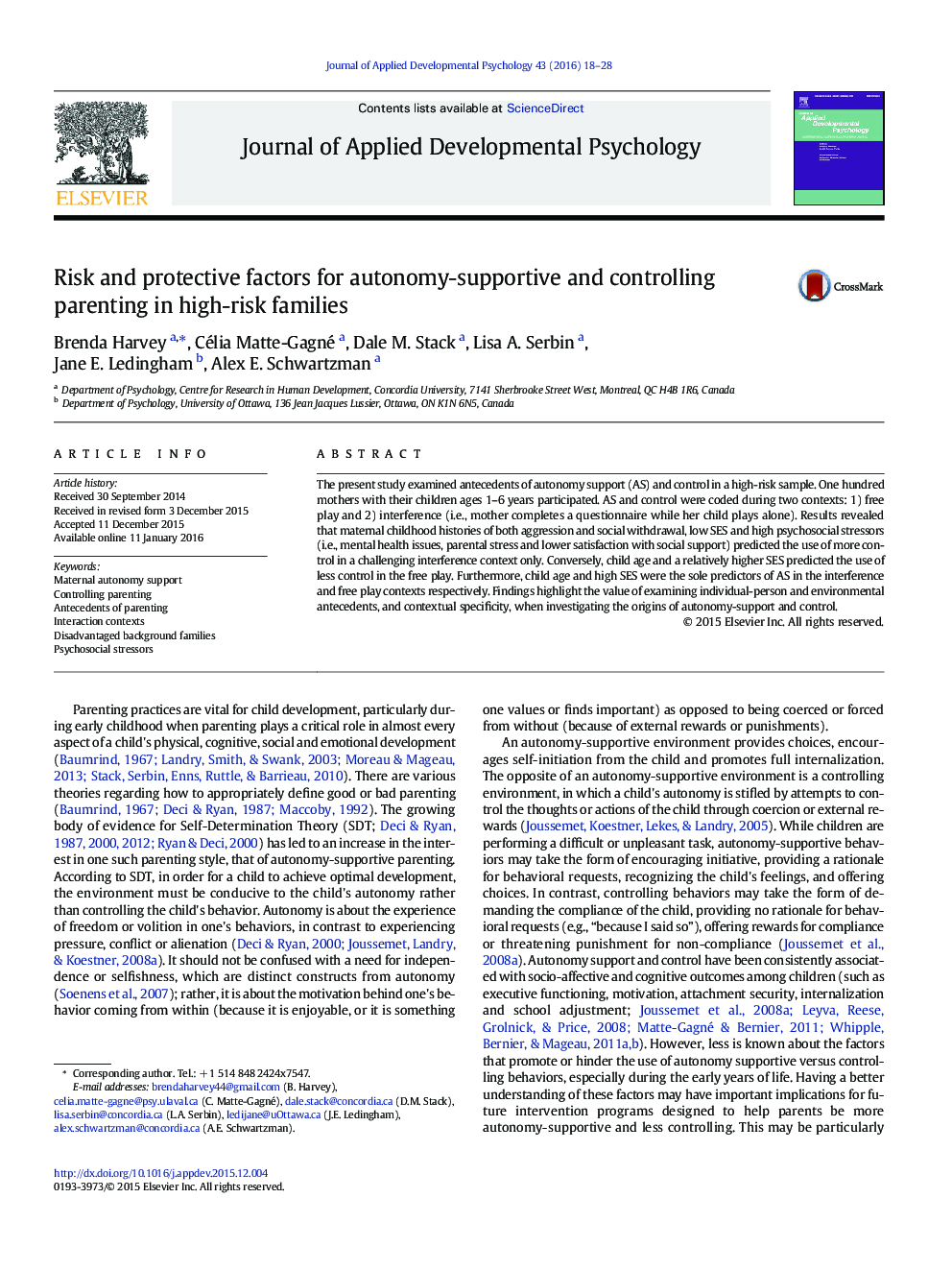| کد مقاله | کد نشریه | سال انتشار | مقاله انگلیسی | نسخه تمام متن |
|---|---|---|---|---|
| 359589 | 620257 | 2016 | 11 صفحه PDF | دانلود رایگان |
• We examine antecedents of autonomy-supportive (AS) & controlling parenting.
• Maternal childhood histories of both aggression & social withdrawal predict control.
• Low SES & high psychosocial stress predict control.
• Child age & a relatively higher SES predict AS.
• Findings are all contextually specific.
The present study examined antecedents of autonomy support (AS) and control in a high-risk sample. One hundred mothers with their children ages 1–6 years participated. AS and control were coded during two contexts: 1) free play and 2) interference (i.e., mother completes a questionnaire while her child plays alone). Results revealed that maternal childhood histories of both aggression and social withdrawal, low SES and high psychosocial stressors (i.e., mental health issues, parental stress and lower satisfaction with social support) predicted the use of more control in a challenging interference context only. Conversely, child age and a relatively higher SES predicted the use of less control in the free play. Furthermore, child age and high SES were the sole predictors of AS in the interference and free play contexts respectively. Findings highlight the value of examining individual-person and environmental antecedents, and contextual specificity, when investigating the origins of autonomy-support and control.
Journal: Journal of Applied Developmental Psychology - Volume 43, March–April 2016, Pages 18–28
